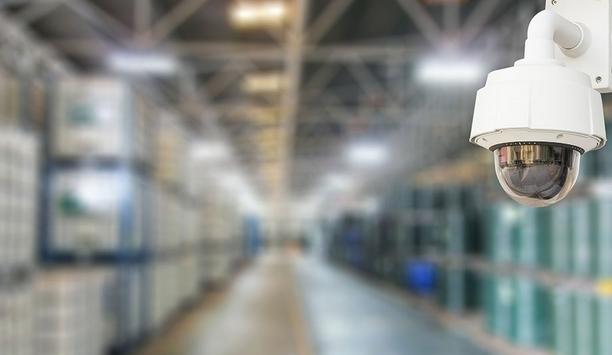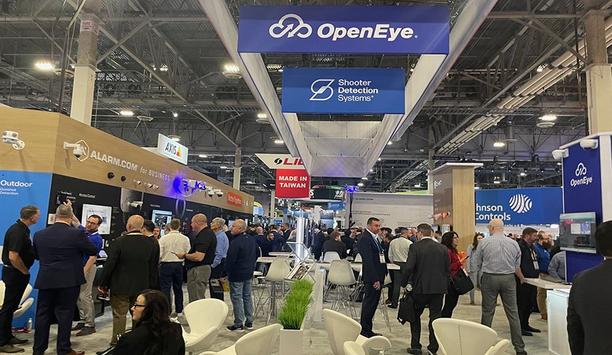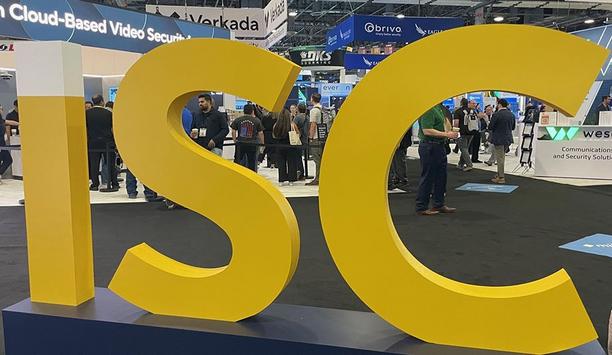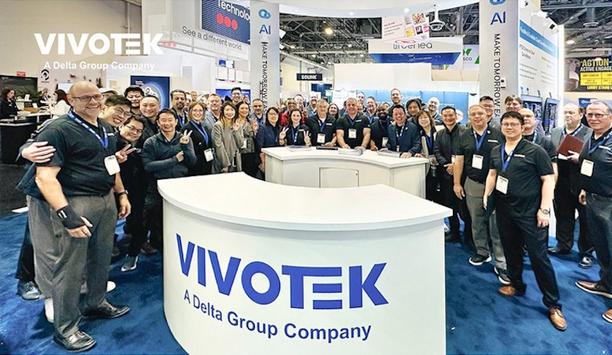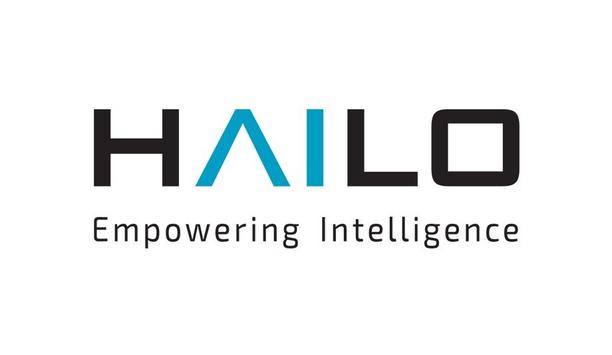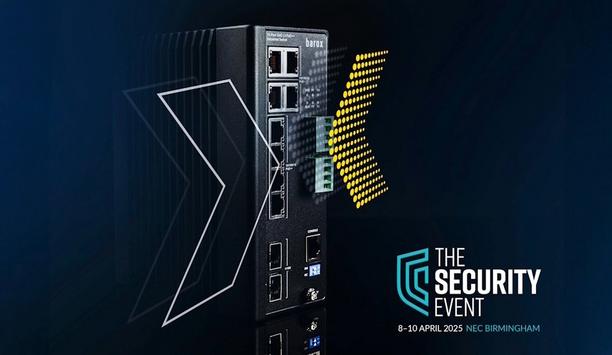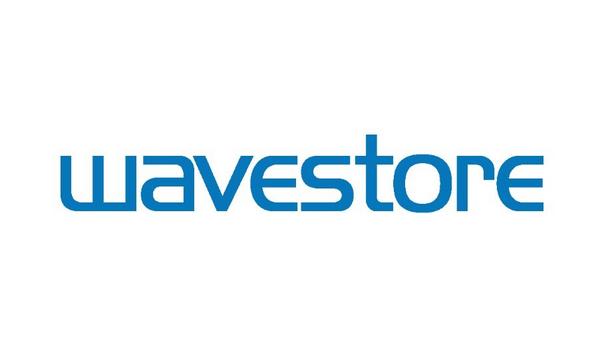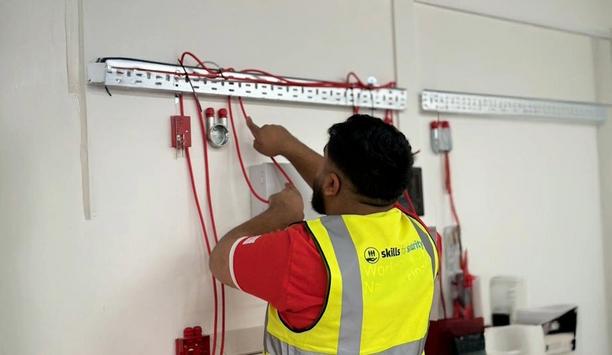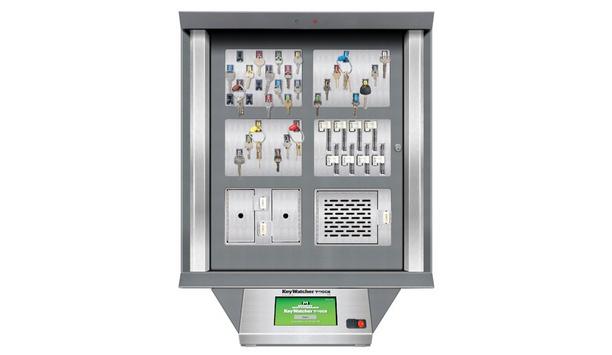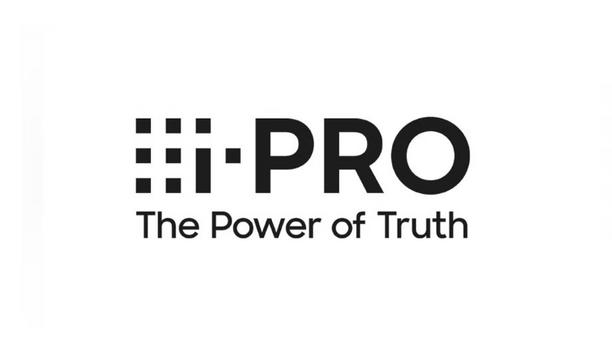Round table discussions
The advantages of security systems as forensic and investigative tools are well understood and demonstrated in the market. However, the new trend is toward systems that are useful in real-time and that even predict a security event, before it happens. We asked this week’s Expert Panel Roundtable: Which security systems are becoming more proactive than reactive?
Arriving at ISC West 2022, it seemed almost as if the last three years hadn't happened. The vibe and the energy seemed just as heightened as in 2019, and it was almost as if the show had somehow gained momentum during the pandemic downtime. For additional insights, we asked this week’s Expert Panel Roundtable: How was ISC West? What surprised you the most?
Can we finally relax a little and announce that the pandemic is nearing an end? With all the false starts and stops, it’s understandable if uncertainty continues to be the dominant force. The apprehension that ruled at every stage continues even as the pandemic (hopefully) ends. But what about ‘the new normal?’ How will the industry need to reinvent itself in the post-pandemic world? We asked this week’s Expert Panel Roundtable: As the industry transitions back to in-pers...
Among the technologies widely used in the world of security, none is more fraught with privacy concerns than biometrics. However, sometimes the privacy concerns are based more on false information than on facts. Privacy must be addressed, of course, but the industry should also promote greater understanding of the technology as a means of combatting misinformation. We asked this week’s Expert Panel Roundtable: What are the biggest misconceptions surrounding biometrics? What is the impact?
The last regularly scheduled spring ISC West trade show was held in 2019. The show returned last year with a rescheduled event in the summer, and attendees were largely pleased with the offerings. However, the ‘real’ ISC West, in the spring in Las Vegas, Nevada, will resume a decades-old tradition in 2022 that has been a major driver of industry market growth and innovation. The show is also an annual reunion of sorts for the security industry, and we are all ready for a reunion! We...
Early in the pandemic, before the mechanisms of COVID spread were clearly understood, there was talk about the disease being transmitted through contact with surfaces. Such concerns created a windfall for manufacturers of hand sanitizer, and broadly changed the perceived risks of touching surfaces, perhaps forever. Touching the same surface as hundreds of other people suddenly became less desirable, thus boosting the fortunes of “touchless” access control and security devices. But wi...
Supply chain issues have plagued the economic recovery during and after the COVID-19 pandemic, and the problems show every indication of persisting for months or even years to come. Supply chain challenges have impacted the security marketplace in many ways, reflecting the breadth and variety of products needed to secure people, facilities, and assets. Wondering about the specifics of that impact, we asked this week’s Expert Panel Roundtable: How does disruption of the global supply chain...
We appreciate the variety of opinionated discussions offered throughout the year by our Expert Panel Roundtable. Looking back at 2021, we found some random and uncategorised Expert Panel responses that were not previously published. We have rescued these responses from our cutting-room floor and present them here in the interest of generating even more discussion.
Digital video systems are driven by software, whether it’s in the cloud, installed on an off-the-shelf server, contained inside a dedicated appliance, or even inside the camera at the edge. Like many elements used for physical security, video management software (VMS) is changing with the times and to meet new challenges in the market. We asked this week’s Expert Panel Roundtable: What are the key trends in video management systems (VMSs)?
As security professionals, one of our goals is a continuous improvement when it comes to protecting people, facilities, and assets. A useful tool for continuous improvement is to apply ‘lessons learned’ in the past to challenges in the future. Because 2021 will be remembered as a challenging and eventful year for all of us, let’s consider what we can learn from the experiences of 2021. We asked this week’s Expert Panel Roundtable: What security lessons did we learn during...
Environmental concerns and ‘green’ initiatives have been gaining steam recently with increasing attention to issues, such as climate change and the drive to ‘net zero’ emissions. Sustainability has not historically been a big concern in the physical security market, but the times are changing. We asked this week’s Expert Panel Roundtable: How can the security industry be more environmentally friendly and contribute to sustainability?
The intersection of consumer electronics and the physical security marketplace is a fertile sector for growth and innovation. Consumers increasingly have the same high expectations for the operation of their workplace technologies as they are accustomed to in the digital world at large. We asked this week’s Expert Panel Roundtable: How do developments in personal electronics impact customer expectations in the physical security market?
The transportation industry is unique because it plays a role in both the minutiae of everyday life and the overall economy's well-being. Providing uninterrupted and efficient transportation services depends heavily on the safety and security of transportation entities. Due to the vast amount of people frequenting transit stations and the importance of the items on ships and ferries, the transportation sector faces multiple challenges that evolve as the industry advances. We asked this week&rsqu...
Traditionally, security has been seen as a cost centre rather than as a profit centre or a source of revenue in an organisation. Therefore, end-user security managers have struggled to cost-justify their purchases of security systems: How can you assign value to preventing a catastrophic loss unless or until such a loss happens (which you’re trying to avoid!). Even so, security’s return on investment (ROI) picture is changing, with expanded system capabilities and technologies that p...
Here’s a news flash: 2022 will be a pivotal year for the security industry. As we enter the new year, continuing change is a safe prediction for any fast-moving, technology-driven marketplace. Recent history confirms the ability of the security industry to shift and adapt to changing conditions and to provide an ever-expanding menu of technology solutions to make the world a safer place. Given that the new year will bring change, what will that change encompass? More to the point, what sho...
The COVID-19 pandemic has complicated the task of securing hospitals and healthcare facilities by adding new concerns about disease transmission to the long list of other threats healthcare security professionals face. Hospital security must also crack the code to both allow open public access to healthcare facilities while keeping out violence and other security threats. We asked this week’s Expert Panel Roundtable: What are the security challenges of the healthcare industry?
Sadly, active shooter incidents have become so common that they no longer grab big headlines or dominate the news cycle. A near-constant cascade of active shooter events persists in the background of our collective consciousness, a familiar drumbeat that is no less tragic because it is continuous. As more active shooter incidents occur, the security marketplace continues to implement solutions to minimise the impact, including gunshot detection. We asked this week's Expert Panel Roundtable: What...
Diversity in a company’s workforce is arguably more important now than ever. Societal awareness of the importance of diversity has grown, and many people see diversity as an important factor that reflects positively (or negatively) on a company’s culture and image in the marketplace. We asked this week’s Expert Panel Roundtable: What should the security industry do to promote workplace diversity?
The death of Michael Brown at the hands of police in Ferguson, Missouri, in August 2014, highlighted to the public, the importance of body-worn cameras. There was no bodycam footage of the Ferguson tragedy. Arguably, it would have shed additional light on the shooting. Since then, body cameras have become a tangible legacy of Ferguson, Missouri. Bodycam footage is seen as providing greater accountability and ensuring an impartial record that can support, or debunk, any claims of police miscondu...
Many of the threats facing the energy and utility sector are related to cybersecurity, as recent incidents have confirmed. Another problem is that operating systems for utilities tend to be outdated, which presents extra challenges in a connected world. There are also physical security demands, not to mention regulatory and social issues. We asked this week’s Expert Panel Roundtable: What are the security trends in energy and utilities?
Air travel is returning to pre-pandemic levels. COVID and its aftermath have added new compliance and operational concerns for airport security, and social and political volatility around the world emphasises the need for constant vigilance. A range of new technologies are enhancing airport security, not to mention providing new tools to simplify processes throughout the airport. We asked our Expert Panel Roundtable: Which technologies are transforming airport security?
Keeping prisoners safely housed is among the biggest challenges the security industry faces. Correctional applications of security technology are often more extreme and require a specialised mix of technologies. We asked our Expert Panel Roundtable: What are the video security and surveillance needs in prisons, and how well do technologies meet those needs? Are there any ethical qualms about selling to prisons?
A new generation of security professional is waiting in the wings. They will be faced with unprecedented challenges, as they seek to transform the security marketplace to the ‘next level’. Technology changes ensure the market will be very different 10 years from now and the fresh labour pool will need to be able to meet the host of new challenges. We asked our Expert Panel Roundtable: What exciting career opportunities in the security industry await the next generation?
Assembling security solutions has long been considered the role of the integrator, whose role is to pick and choose the best technology tools and then to assemble the complete system. However, more manufacturers are offering pre-integrated end-to-end solutions that include multiple elements from the same manufacturer, designed to work seamlessly together. At the end of the day, end users want to know: Whose role is it to provide security ‘solutions’ – the manufacturer or the in...
Facial recognition is a mature technology that continues to change and evolve. New innovations such as artificial intelligence (AI) are expanding facial recognition capabilities, even as privacy concerns, though often misguided, undermine wider acceptance in the market. We asked this week’s Expert Panel Roundtable: What are the new developments in facial recognition?
Residential security and smart homes are rapidly changing facets of the larger physical security marketplace, driven by advances in consumer technology and concerns about rising crime rates. During the COVID-19 pandemic, many people spent more time at home and became more aware of the need for greater security. As workplaces opened back up, returning workers turned to technology to help them keep watch over their homes from afar. We asked this week’s Expert Panel Roundtable: What are the...
Since the advent of the physical security industry, access control has been synonymous with physical cards, whether 125 kHz ‘prox’ cards or the newer smart card alternatives. However, other credentials have also come on the scene, including biometrics and even smart phones. Some of these choices have distinct cost and security advantages over physical cards. We asked this week’s Expert Panel Roundtable: How soon will the access control card become extinct and why?
Cost is a reality to be managed. No matter how powerful or desirable a technology may be to a customer, the sale often comes down to the basic question: Can I afford it? And affordability extends not just to the purchase price, but to the cost of technology over its lifespan. In addition to advances in technology capabilities, the security industry has also achieved inroads to make its offerings more worth the cost. We asked this week’s Expert Panel Roundtable: What is the physical securi...
“Deep learning” is recently among the more prevalent jargon in the physical security industry, and for good reason. The potential benefits of this subset of artificial intelligence (AI) are vast, and those benefits are only now beginning to be understood and realised. But how can we separate the marketing hype from reality? How can we differentiate between future potential and the current state of the art? To clarify the latest on this new technology, we asked this week’s Exper...
Crime prevention is a basic goal of security, even if a security system merely convinces a criminal to seek out a different target. However, many of today’s security technologies are most useful after the fact, to provide forensic information about a crime that has already taken place. Solving a crime presents a whole new level of challenge. Surely, prevention is the best approach. We asked this week’s Expert Panel Roundtable: How successful is the security industry in crime preventi...
ISC West 2025 news
ISC West 2025, organised by RX and in collaboration with the Security Industry Association, concluded at the Venetian Expo in Las Vegas last week. The nation’s pioneering comprehensiv...
ADI | Snap One is demonstrating its expansive portfolio at ISC West 2025 from April 2 – 4, at The Venetian Expo in Las Vegas, Nevada, USA. In Booth #12043, visitors can explore an assortment of...
Robotic Assistance Devices, Inc. (RAD), a subsidiary of Artificial Intelligence Technology Solutions, Inc., announced the expansion of its popular RIO™ solar-powered, mobile security solution li...
At ISC West 2025, Resideo Technologies, a pioneering provider of solutions for home comfort, security and safety, introduced the new First Alert® CX4 Camera Series. Compatible wit...
The Security Industry Association (SIA) has announced its new Board of Directors chair-elect and presented its new and returning members to the SIA Board of Directors on April 1 at The...
SWEAR, a pioneer in digital content authenticity, announced the official release of the enterprise version of its video content authentication tool, SWEAR Security. The enterprise tool integrate...
Antaira Technologies, a pioneer in industrial networking solutions, is launching at the International Security Conference and Exposition (ISC West) its new Airolinx 6 Series of environmental...
Untether AI®, a pioneer in energy-centric AI inference acceleration, is teaming up with AI Platform Alliance members Ampere® Computing, NETINT, ZoneMinder, AVC Group, and ASA Computers to...
Nanodems, a pioneering provider of Physical Security Information Management (PSIM) software, proudly presented its latest innovations at the ISC West 2025, drawing strong interest from security profes...
The Physical Security Interoperability Alliance (PSIA) hosted a well-attended cocktail reception and live demonstration during ISC West 2025 to unveil its latest advancement:...
For all the emphasis on cloud systems and centralised servers at ISC West, a lot of innovation in security video systems is happening at the edge. New advancements inside video cameras are boosting...
Anyone who has been in a proverbial cave for the last couple of years faced a language barrier at this year’s ISC West 2025 trade show. The industry’s latest wave of innovation has brought...
ISC West 2025 in Las Vegas showcased the latest advancements in security technology, offering security professionals a glimpse into the future of the industry. This year's expo highlighted the growing...
VIVOTEK (3454-TW), the pioneering security solution provider, celebrates its 25th anniversary by reaffirming its commitment to pioneering AI and cloud-based technologies. At ISC West—the larges...
Hailo, the pioneering provider of edge AI processors, will demonstrate smart security cameras empowered by its vision processing units (VPUs) as well as video management systems empowered by its AI ac...
ISC West 2025, organised by RX and in collaboration with the Security Industry Association, concluded at the Venetian Expo in Las Vegas last week. The nation’s pioneering comprehensiv...
ADI | Snap One is demonstrating its expansive portfolio at ISC West 2025 from April 2 – 4, at The Venetian Expo in Las Vegas, Nevada, USA. In Booth #12043, visitors can explore an assortment of...
Robotic Assistance Devices, Inc. (RAD), a subsidiary of Artificial Intelligence Technology Solutions, Inc., announced the expansion of its popular RIO™ solar-powered, mobile security solution li...
At ISC West 2025, Resideo Technologies, a pioneering provider of solutions for home comfort, security and safety, introduced the new First Alert® CX4 Camera Series. Compatible wit...
The Security Industry Association (SIA) has announced its new Board of Directors chair-elect and presented its new and returning members to the SIA Board of Directors on April 1 at The...
SWEAR, a pioneer in digital content authenticity, announced the official release of the enterprise version of its video content authentication tool, SWEAR Security. The enterprise tool integrate...
Antaira Technologies, a pioneer in industrial networking solutions, is launching at the International Security Conference and Exposition (ISC West) its new Airolinx 6 Series of environmental...
Untether AI®, a pioneer in energy-centric AI inference acceleration, is teaming up with AI Platform Alliance members Ampere® Computing, NETINT, ZoneMinder, AVC Group, and ASA Computers to...
Nanodems, a pioneering provider of Physical Security Information Management (PSIM) software, proudly presented its latest innovations at the ISC West 2025, drawing strong interest from security profes...
The Physical Security Interoperability Alliance (PSIA) hosted a well-attended cocktail reception and live demonstration during ISC West 2025 to unveil its latest advancement:...
For all the emphasis on cloud systems and centralised servers at ISC West, a lot of innovation in security video systems is happening at the edge. New advancements inside video cameras are boosting...
Anyone who has been in a proverbial cave for the last couple of years faced a language barrier at this year’s ISC West 2025 trade show. The industry’s latest wave of innovation has brought...
ISC West 2025 in Las Vegas showcased the latest advancements in security technology, offering security professionals a glimpse into the future of the industry. This year's expo highlighted the growing...
VIVOTEK (3454-TW), the pioneering security solution provider, celebrates its 25th anniversary by reaffirming its commitment to pioneering AI and cloud-based technologies. At ISC West—the larges...
Hailo, the pioneering provider of edge AI processors, will demonstrate smart security cameras empowered by its vision processing units (VPUs) as well as video management systems empowered by its AI ac...
ISC West 2025, organised by RX and in collaboration with the Security Industry Association, concluded at the Venetian Expo in Las Vegas last week. The nation’s pioneering comprehensiv...
The Security Event 2025 news
A rapidly growing European team, exciting new product releases and new look stand are the hallmarks of what looks set to be a calendar highlight for Gallagher Security at this year’s, The Securi...
Genetec Inc., the pioneer in enterprise physical security software, will be present at The Security Event, which is being held 8–10 April 2025 at the NEC Arena in Birmingham. The company...
Global security manufacturer, Gallagher Security, has again demonstrated its people-first ethos, partnering with the UK’s Skills for Security to support the next generation of security professio...
DNAKE, a pioneering innovator in intercom and home automation solutions, is excited to announce its participation in The Security Event 2025, taking place from April 8th to 10th, 2025, at th...
barox Kommunikation AG is delighted to announce the launch of their new technology partnership with Network Optix, the latest addition to their already extensive integration portfolio with market-pion...
Wavestore is set to showcase its latest advancements at The Security Event (TSE) 2025, taking place at the NEC Birmingham from 8–10 April. Visitors to stand 5/K125 will experience Wavestore's n...
Keynetics, the provider of the well-recognised SentriGuard key management solution, is set to showcase its latest integration with AJAX alarm systems at The Security Event, taking place at the NEC Bir...
Skills for Security has continued its collaboration with WorldSkills UK for the 2025 season, announcing the Electronic Security and Fire competitions will be merged into a single category. This strat...
Award-winning security manufacturer, Gallagher Security, is reflecting on the success of this year’s The Security Event 2025 held at Birmingham’s NEC from 8-10 April. Among a full-s...
Altronix, a recognised pioneer in power and data transmission for the professional security industry, is showcasing its latest innovations at stand 5/K30 during The Security Event 2025 in Birming...
Morse Watchmans, the industry pioneer in key control and asset management systems, is highlighting its advanced solutions at stand 5/E20 during The Security Event UK 2025. The company will demonstrat...
Integrated Access Control and Security manufacturer TDSi announces its upcoming appearance at The Security Event 2025, which is being held at the Birmingham NEC from 8th to 10th April 2...
PACOM, a pioneering provider of integrated security and business management solutions, will highlight its next-generation cloud-based platform VIGIL CORE at The Security Event 2025. The scalable sec...
3xLOGIC, a pioneering provider of integrated and intelligent security and business solutions, will showcase new product developments for video management, and business intelligence solutions at The Se...
At The Security Show (TSE), on stand 5/G55, i-PRO Co., Ltd. (formerly Panasonic Security), a pioneering manufacturer of edge computing cameras for security and public safety, will showcase i...
A rapidly growing European team, exciting new product releases and new look stand are the hallmarks of what looks set to be a calendar highlight for Gallagher Security at this year’s, The Securi...
Genetec Inc., the pioneer in enterprise physical security software, will be present at The Security Event, which is being held 8–10 April 2025 at the NEC Arena in Birmingham. The company...
Global security manufacturer, Gallagher Security, has again demonstrated its people-first ethos, partnering with the UK’s Skills for Security to support the next generation of security professio...
DNAKE, a pioneering innovator in intercom and home automation solutions, is excited to announce its participation in The Security Event 2025, taking place from April 8th to 10th, 2025, at th...
barox Kommunikation AG is delighted to announce the launch of their new technology partnership with Network Optix, the latest addition to their already extensive integration portfolio with market-pion...
Wavestore is set to showcase its latest advancements at The Security Event (TSE) 2025, taking place at the NEC Birmingham from 8–10 April. Visitors to stand 5/K125 will experience Wavestore's n...
Keynetics, the provider of the well-recognised SentriGuard key management solution, is set to showcase its latest integration with AJAX alarm systems at The Security Event, taking place at the NEC Bir...
Skills for Security has continued its collaboration with WorldSkills UK for the 2025 season, announcing the Electronic Security and Fire competitions will be merged into a single category. This strat...
Award-winning security manufacturer, Gallagher Security, is reflecting on the success of this year’s The Security Event 2025 held at Birmingham’s NEC from 8-10 April. Among a full-s...
Altronix, a recognised pioneer in power and data transmission for the professional security industry, is showcasing its latest innovations at stand 5/K30 during The Security Event 2025 in Birming...
Morse Watchmans, the industry pioneer in key control and asset management systems, is highlighting its advanced solutions at stand 5/E20 during The Security Event UK 2025. The company will demonstrat...
Integrated Access Control and Security manufacturer TDSi announces its upcoming appearance at The Security Event 2025, which is being held at the Birmingham NEC from 8th to 10th April 2...
PACOM, a pioneering provider of integrated security and business management solutions, will highlight its next-generation cloud-based platform VIGIL CORE at The Security Event 2025. The scalable sec...
3xLOGIC, a pioneering provider of integrated and intelligent security and business solutions, will showcase new product developments for video management, and business intelligence solutions at The Se...
At The Security Show (TSE), on stand 5/G55, i-PRO Co., Ltd. (formerly Panasonic Security), a pioneering manufacturer of edge computing cameras for security and public safety, will showcase i...
A rapidly growing European team, exciting new product releases and new look stand are the hallmarks of what looks set to be a calendar highlight for Gallagher Security at this year’s, The Securi...
Security experts
Expert commentary
Security beat
Using artificial intelligence (AI) to automate physical security systems
DownloadA modern guide to data loss prevention
Download7 proven solutions for law enforcement key control and asset management
DownloadThe truth behind 9 mobile access myths
DownloadAccess control system planning phase 2
Download







